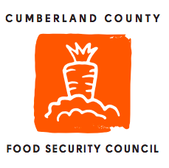What is Closing the Hunger Gap with Local Food?
CCFSC notes the positive synergies of using food produced by local farmers to create food access with people with limited incomes. Local food supports nutritious diets, stimulates regional economies, sustains healthy environments and creates strong social connections. Many Council members use strategies involving local food to address food insecurity in our communities.
In 2015, CCFSC articulated a strategy and developed a presentation entitled, “Closing the Hunger Gap with Local Food”. This was delivered by Kristen Miale, President, Good Shepherd Food Bank and Craig Lapine, Executive Director, Cultivating Community at the Closing the Hunger Gap conference in Portland, Oregon that September. It shows the specific ways our community partners collaborate to strengthen our local food system by connecting food producers with limited resource consumers.
Using that initial framework, CCFSC has documented, in much more detail, the people, programs, and collaborations that build food security, in Cumberland County and beyond, with local food as the basis. The report includes two seasons worth of data from defined programs. It establishes baselines we can grow from. It will raise awareness from others using this strategy so we can include them in future data collection efforts and reports to the community. It will draw support to the efforts of partners using this strategy. Ideally, it will inspire new approaches that can be even more effective in connecting people with limited resources to local food.
We welcome your feedback to this report. We are especially interested in learning about other people having success using local food to address hunger in your community.
CHGLF Authors; Jim Hanna, Alexandra Mediate, Kathryn Sargent with significant contributions from Kristina Kalolo.
In 2015, CCFSC articulated a strategy and developed a presentation entitled, “Closing the Hunger Gap with Local Food”. This was delivered by Kristen Miale, President, Good Shepherd Food Bank and Craig Lapine, Executive Director, Cultivating Community at the Closing the Hunger Gap conference in Portland, Oregon that September. It shows the specific ways our community partners collaborate to strengthen our local food system by connecting food producers with limited resource consumers.
Using that initial framework, CCFSC has documented, in much more detail, the people, programs, and collaborations that build food security, in Cumberland County and beyond, with local food as the basis. The report includes two seasons worth of data from defined programs. It establishes baselines we can grow from. It will raise awareness from others using this strategy so we can include them in future data collection efforts and reports to the community. It will draw support to the efforts of partners using this strategy. Ideally, it will inspire new approaches that can be even more effective in connecting people with limited resources to local food.
We welcome your feedback to this report. We are especially interested in learning about other people having success using local food to address hunger in your community.
CHGLF Authors; Jim Hanna, Alexandra Mediate, Kathryn Sargent with significant contributions from Kristina Kalolo.
The Report
|
An electronic version of the report can be found here.
| ||||||
The Presentation
The CCFSC was honored to present along with the Somali Bantu Community Association at the 2017 Community Food Systems Conference to discuss how 'Local Food Builds Strong Communities'. Using data and framing from the Closing the Hunger Gap with Local Food report, the presentation details the numerous strategies our Council Members are employing to build food security here in Maine.

